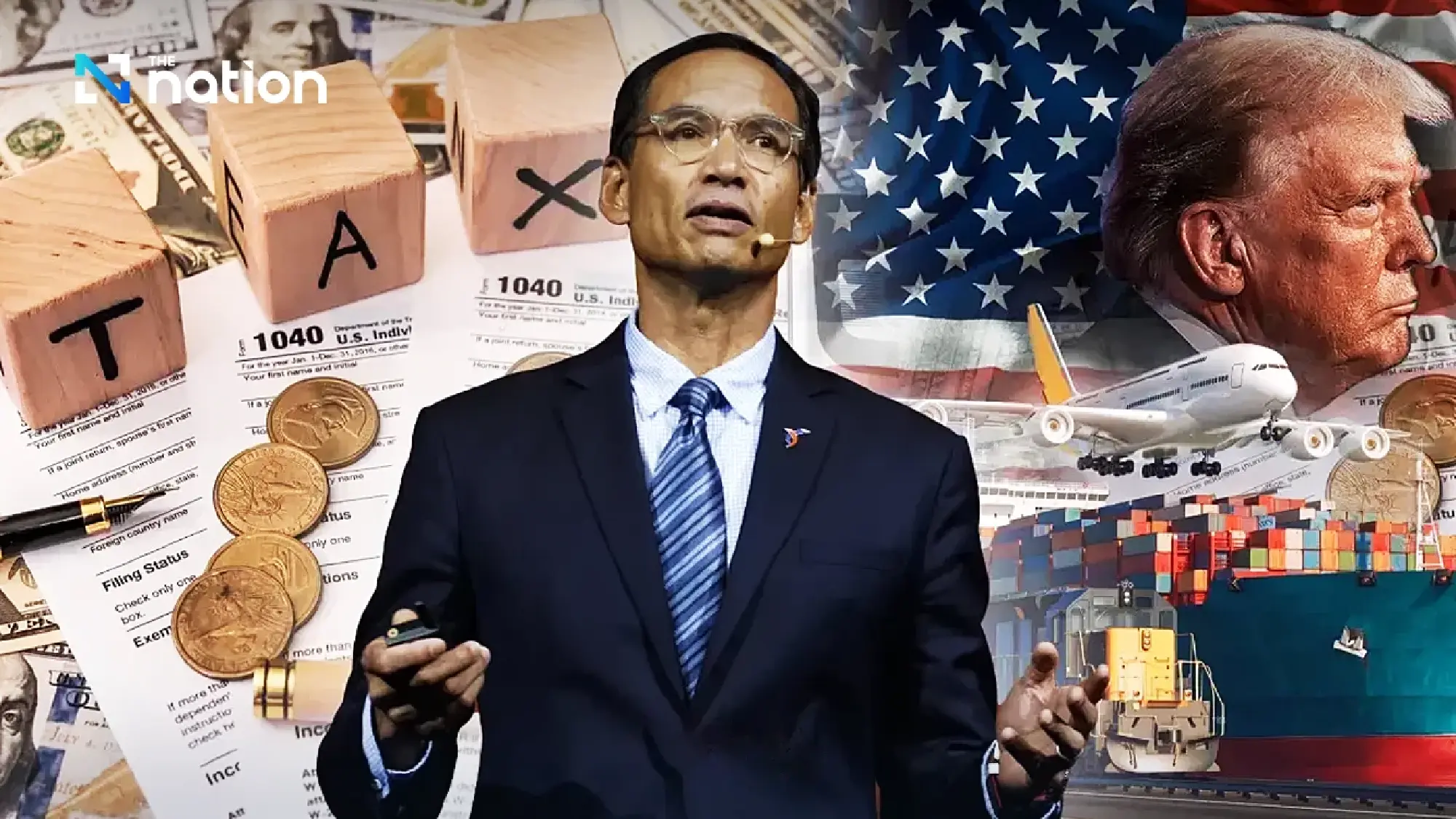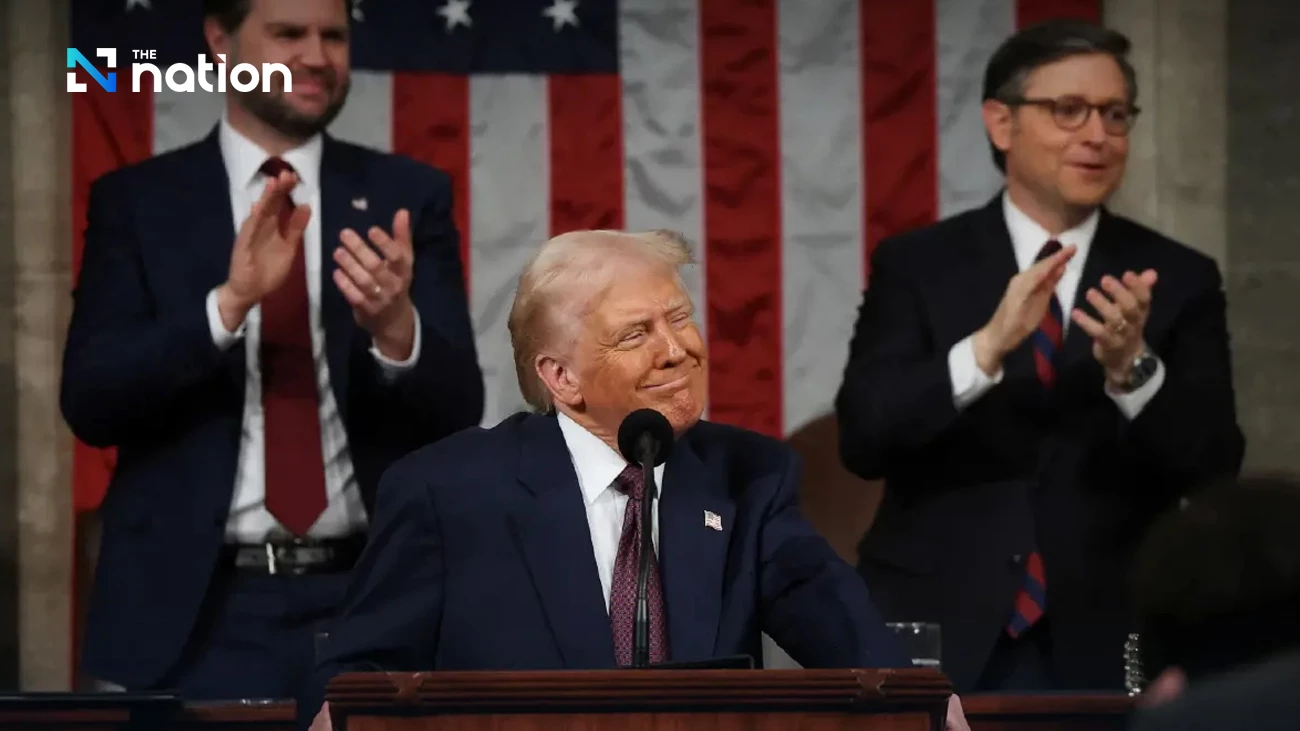While Thailand’s tariff rate remains at 36%, the country now faces mounting pressure to negotiate a better deal as other nations, such as Vietnam, gain more favourable terms. The 36% tariff is expected to put additional strain on Thailand’s export-driven industries, with foreign investors potentially shifting production bases to countries with lower tariffs, further diminishing Thailand’s competitive edge.
A ‘warning sign’ of US dissatisfaction
Kobsak Pootrakool, an economist and expert in macroeconomic policy, expressed his views on his personal Facebook page, stating that Thailand’s 36% tariff—the same as the first round—is a warning sign that the proposals Thailand submitted have not satisfied the United States. It is also not considered a “good deal” in President Trump’s perspective. Kobsak emphasised that Thailand needs to do more homework and go back to the negotiating table, otherwise, the outcome may end up the same as what Trump declared on April 2.
Kobsak pointed out that the US may not back down because the market has already been informed of these figures. US businesses have had 90 days to adjust, and unless the US stock market experiences a significant downturn in the next 2-3 days, it will be difficult to change President Trump’s mind.
He also added that Thailand is at a disadvantage compared to its competitors. If Vietnam faces a 20% tariff and Malaysia a 25% tariff, Thailand will be in a position where it is disadvantaged by 10-16% in terms of tax costs. This will significantly impact exporters, as trading partners may choose to purchase goods from countries with lower costs.
As for the impact on investment, Kobsak views that the higher tax costs in Thailand compared to its competitors will significantly influence foreign investment decisions, as investors may choose to establish factories in countries with lower tax rates, such as Vietnam.
Propose 5 ‘give and take’ approaches to handle Trump’s tariffs
Pipat Luengnaruemitchai, Managing Director and Chief Economist of Kiatnakin Phatra Financial Group, posted on his personal Facebook page that negotiating a “win-win” deal with Trump is difficult. This situation requires Thailand to consider a “give and take” approach, carefully assessing the impact of each option and finding appropriate compensatory measures. The proposed strategies are as follows:
1. Understand the US’s demands in detail, particularly the issues that Vietnam has agreed to, such as opening up the US market, reducing import tariffs, eliminating non-tariff barriers, and addressing “transshipment” issues. Thailand must carefully assess the impact and costs of each option, including finding a viable solution to the transshipment problem that can be practically implemented.
2. Gradually liberalise and provide compensatory measures, particularly in the agriculture sector, which is the most impacted industry.
3. Enhance competitiveness and attract investment in technology and high-value industries, such as providing incentives for R&D, tax credits for EV parts production, AI hardware, and data centres. This should also include upskilling the workforce in digital skills and robotics to raise average wages and productivity.
4. Establish a war room consisting of representatives from the Ministry of Finance, Ministry of Commerce, Ministry of Agriculture, and the private sector to make quick decisions and send a clear signal to the US and investors that Thailand is committed.
5. Expand export markets by leveraging trade agreements such as RCEP, CPTPP, and GCC, and accelerating Free Trade Agreements (FTAs) with major economies like the European Union (EU) to reduce reliance on the US market and diversify export risks.

Korn Chatikavanij, former Finance Minister, stated that negotiating with Trump is extremely challenging. The US holds the upper hand from the start, and while our government seeks a win-win situation, he views it as us having taken advantage of them for too long. Now it’s their turn to “win” to make up for it – our team failed to read the situation properly.
Korn said the reason Vietnam was able to reduce import tariffs to 0% is because they are more competitive (and ready to compete) than we are in every sector.
“The question is, in the negotiations, who have we still been trying to protect? Was it worth the hardship for exporters and the loss of revenue for the country?” he said.
Korn suggested that the government should review the entire 2025 budget, including both sources of revenue and spending. If the government continues with business as usual, the Thai people will face severe difficulties, he warned.
Secondly, attention should be paid to the impact on the country’s current account balance. If we start running a continuous deficit while foreign investment declines, this will be a concern, he said.
“The issue of stability will become more significant. At this point, we will have to choose a new Bank of Thailand Governor. The vision and attitude of the new governor will play a crucial role in shaping confidence in the country’s financial future,” said Korn.
